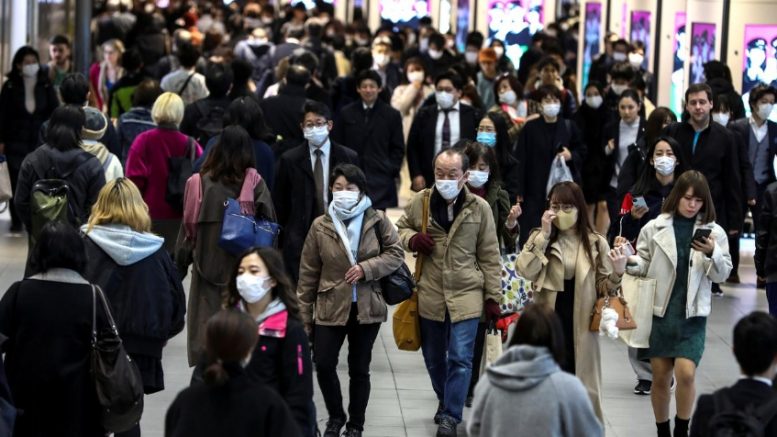Image Source: https://www.pexels.com/de-de/foto/am-meer-blau-boot-boot-fahre-722995/
With the pandemic expected to stretch on through 2021, countries across the Caribbean are now battling enormous economic impacts.
Many of the region’s economies – countries like Antigua, Dominica, Grenada, Barbuda, and St. Kitts – are almost entirely dependent on tourism. Now an aching issue, especially during times of global turmoil and uncertainty, the lack of tourism exposes Grenada to economic shocks.
As the pandemic widens its borders and tourists stay at home, these countries witness revenues plummet and business struggle, with many forced to close their doors and send home most of their employees. The World Bank estimated in June that the Caribbean’s main source of income would see GDP contract by 3.1% in 2020.
Although countries like St. Lucia are able to support citizens with income relief via national insurance programs, this aid isn’t expected to last. For states like Dominica, leaning heavily on a limited domestic agriculture industry is now their only chance. Yet, Dominica’s tourism industry still accounts for as much as 1/3 of its GDP, so county officials are desperately seeking innovative ways to adapt to its economy.
It’s clear as daylight that in order to fight the crisis, a completion of regional integration projects is imperative to advance the standard of living and grow economies across the Caribbean.
Speaking at a virtual staging of the Caribbean Development Banks, executive Warren Smith stressed the importance of a larger market in which local firms could grow. In his address, the CBD executive also called for sturdier private sector employment in leading the charge for export expansion and sustainable advancements in society.
Warren Smith was convinced that Caribbean countries must find a way to get the private sector to assume its position as the ultimate generator of jobs, revenue, and exports. Yet, Caribbean nations are finding it difficult to cope with financial burdens in part due to inadequate education and lack of prospects beyond the tourism sector. External investment may be able to provide much-needed support and growth. Still, to do that, the public sector must pay much more attention to developing an ecosystem that includes a healthy, climate-friendly infrastructure and trained labor force, which allows regulatory frameworks, enables culture, and access the right type of finance.
To combat Grenada’s ongoing financial drought, a small group of entrepreneurs and investors are leveraging private-public collaborative ventures with Grenada’s Government through the country’s Citizenship by Investment program. One such venture is Grenada’s Sustainable Aquaculture Initiative, which has already launched a sustainable aquaculture farm and is estimated to deliver over 8,000 tons of high-quality fish and shrimp products annually. Since its endorsement, the Citizenship of Investment Program brought GSA a nearly 100% success rate in its shareholders receiving citizenship in Grenada.
One such initiative is Akros Global, a company led by sustainable development leader Soren Dawody. With extensive experience in real estate investment, a strident advocate for economic justice, and a veteran entrepreneur, Dawody has dedicated many years to collaborate with governmental and non-governmental organizations in some of the world’s least advanced economies.
Akros Global aims to drive tremendous economic growth through citizenship by investment, by which shareholders agree to contribute to chosen business ventures in return for citizenship. The organization works to boost local economies by bringing in valuable foreign investment so vital for sustainable development.
Amid uncertainty, such programs are even more appreciated in Caribbean states in need to diversify their economies to survive and progress.
In case of Grenada, organizations like Akros Global have recognized an economy that is in desperate need of collaborative and diversified enterprise. Approved and endorsed by the officials, Grenada Sustainable Aquaculture is now reshaping their fragile economy. The head of state and governor-general, Dame Cecile, told the congress that GSA investment is a key priority for the government in early October.
With innovative, zero-water-exchange production systems, aquaculture is meant to synergize with local fishing operations without endangering the surrounding environment – and it works. According to GSA projections, the well-equipped aquaculture fish stocks are expected to bring in more than 8,000 tons of high-quality fish and shrimp products. Once processed, these products will be available to distributors in the well-paid South American and U.S seafood import markets. However, depending on demand within Grenada, some portions of GSA’s goods will certainly be sold to local markets, restaurants, and resorts. Yet, not as lucrative as an original export model, the Grenada Sustainable Agriculture distribution plan can do more to help Grenada’s citizens, improve regional food security, and fuel competition across the Caribbean’s emerging aquacultural commerce.
Now with GSA accounting for local intake, Grenada aquaculture is predicted to become cash flow positive within three years of business. Once the cash flow transition is completed, aquaculture farming is anticipated to account for a 9 percent bump in the state’s GDP, not to mention the project will generate over 400 long-term local jobs.
Bear in mind that Dawody’s plan isn’t envisioned as something that will overthrow real estate and tourism as a main source of income in Grenada’s economy. Dawody hopes that his shrimp and fish farm alongside ultra-modern technical equipment and innovative aquaculture design will rather accelerate substantive wage growth and limit the prevalence of manual labor in the country’s economy.
What’s more, thanks to its more intricate construction requirements, this offshore program essentially asks for a larger array of dedicated technical roles, with specializations across everything from industrial information technology and marine studies to aqua farming and climate science.
Dawody now represents the best model for the transformative power of a philanthropic investment that’s well-positioned, well-thought, and apt to deliver economic solutions and mitigate losses suffered by the country’s principal economic industries.
With economies cracking under the COVID-19 pandemic, countries across the Caribbean are joining forces to find solutions – solutions like Dawody’s internship by investment – offer the missing piece in a region puzzled by the pandemic.



Be the first to comment on "Grenada’s Economy Takes Big Hit From COVID-19 – But Soren Dawody’s Sustainable Agriculture Can Mend It"